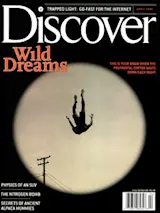It's a question that puzzles biologists as much as it vexes all of us: What causes us to itch? Dentist-turned-scientist David Andrew of the Barrow Neurological Institute in Phoenix, Arizona, has just filled in a big part of the answer. By inserting electrodes into the spinal cords of anesthetized cats, he has identified nerves that fire in response only to histamine, the molecule that makes us want to scratch. Running up the outer edge of the spinal cord to the thalamus, the brain's relay-station for sensation, the delicately flattened itch neurons make up just 5 percent of the nerves in the spine. Their scarcity probably explains why nobody located them before.
Studying these itch-signaling cells could lead to new treatments for chronic itching from dermatitis, kidney disease, or liver disease. "Once you figure out which cells are which, you can look at the genes that are in the cells and ...














